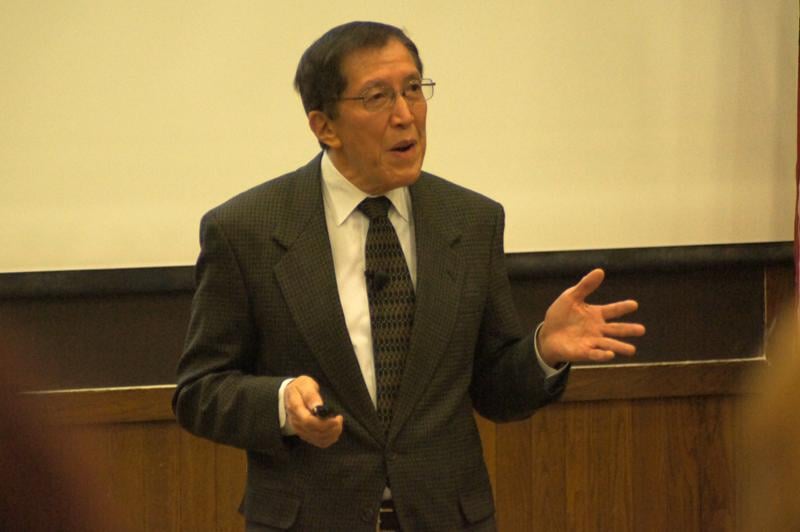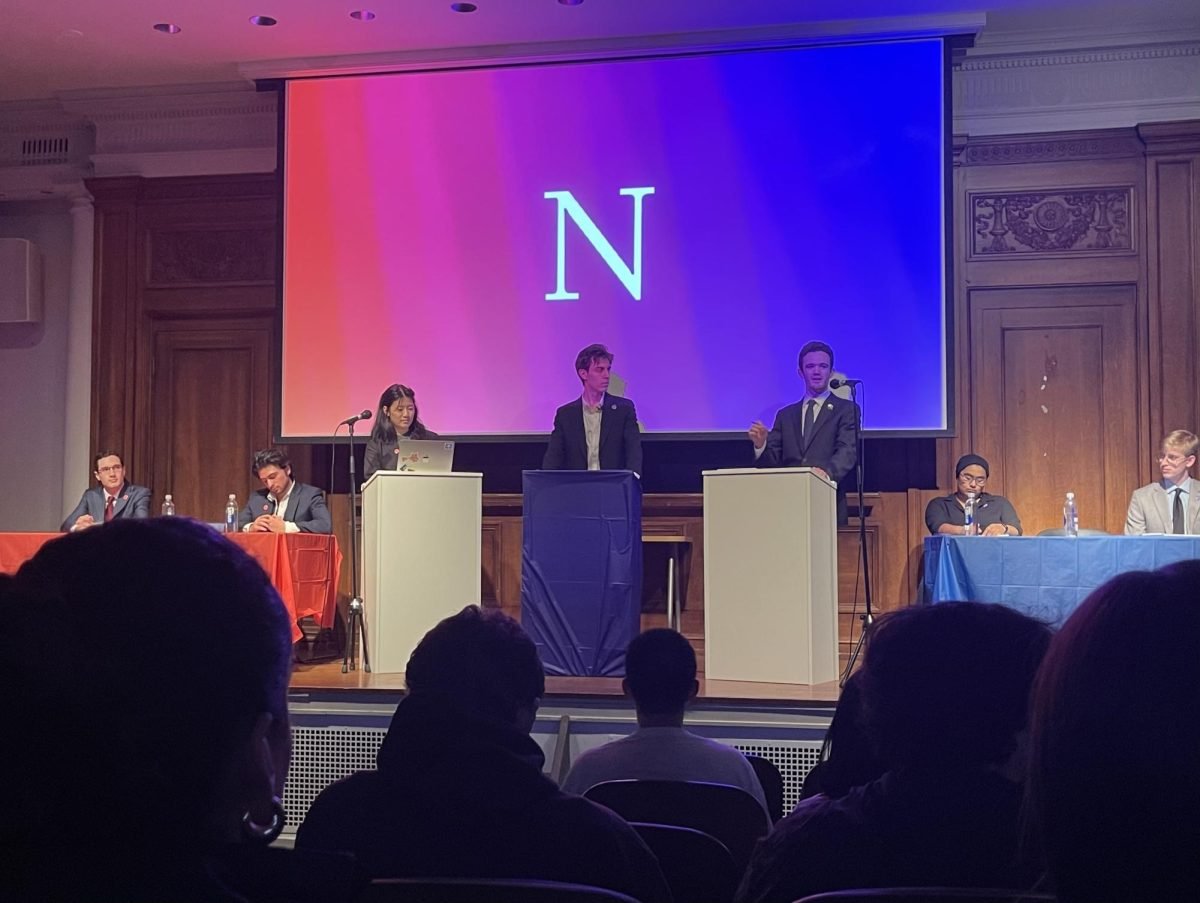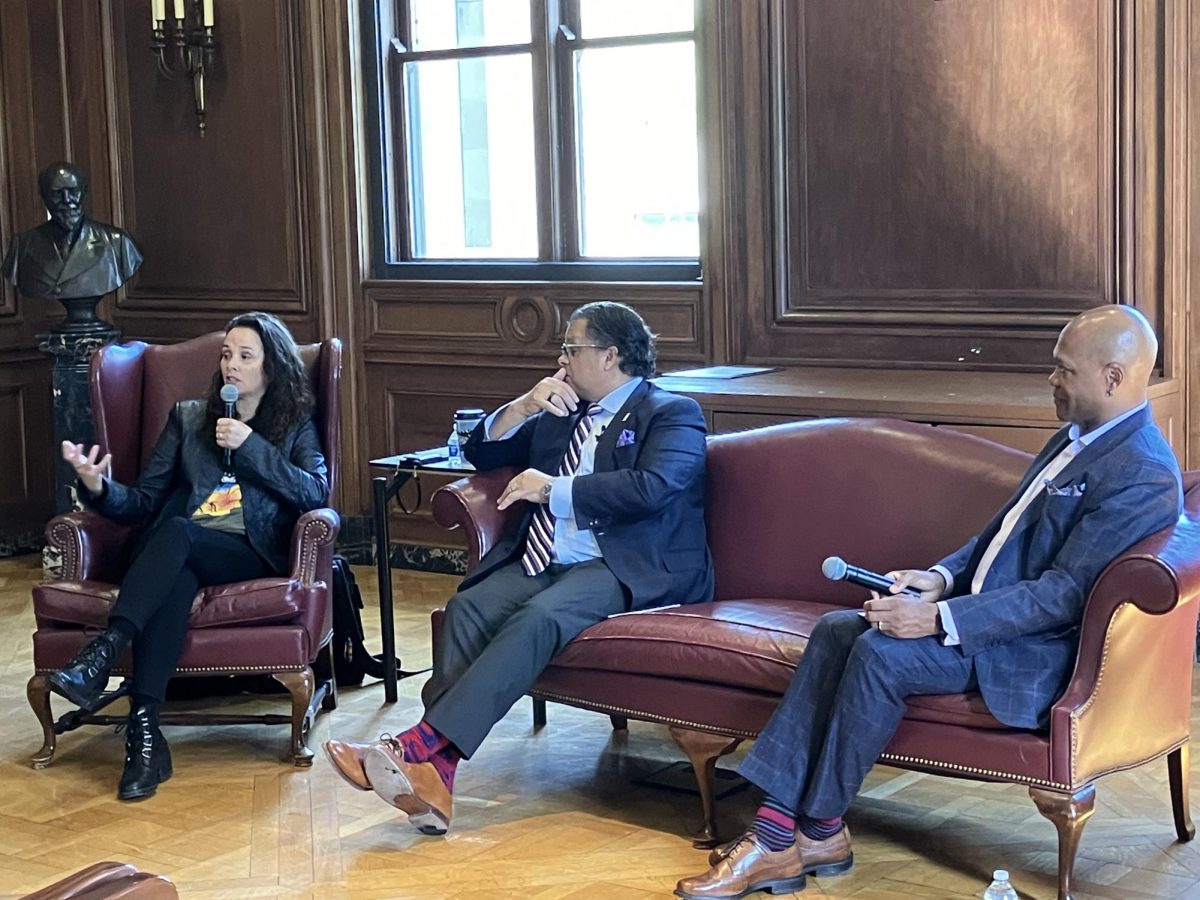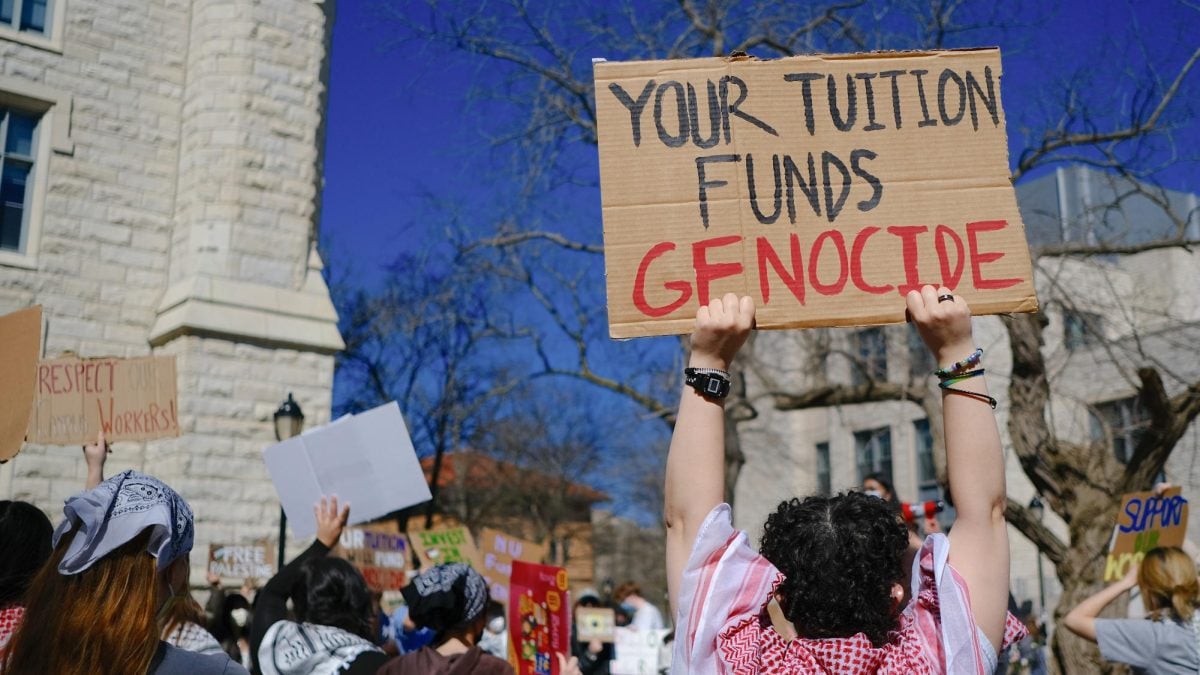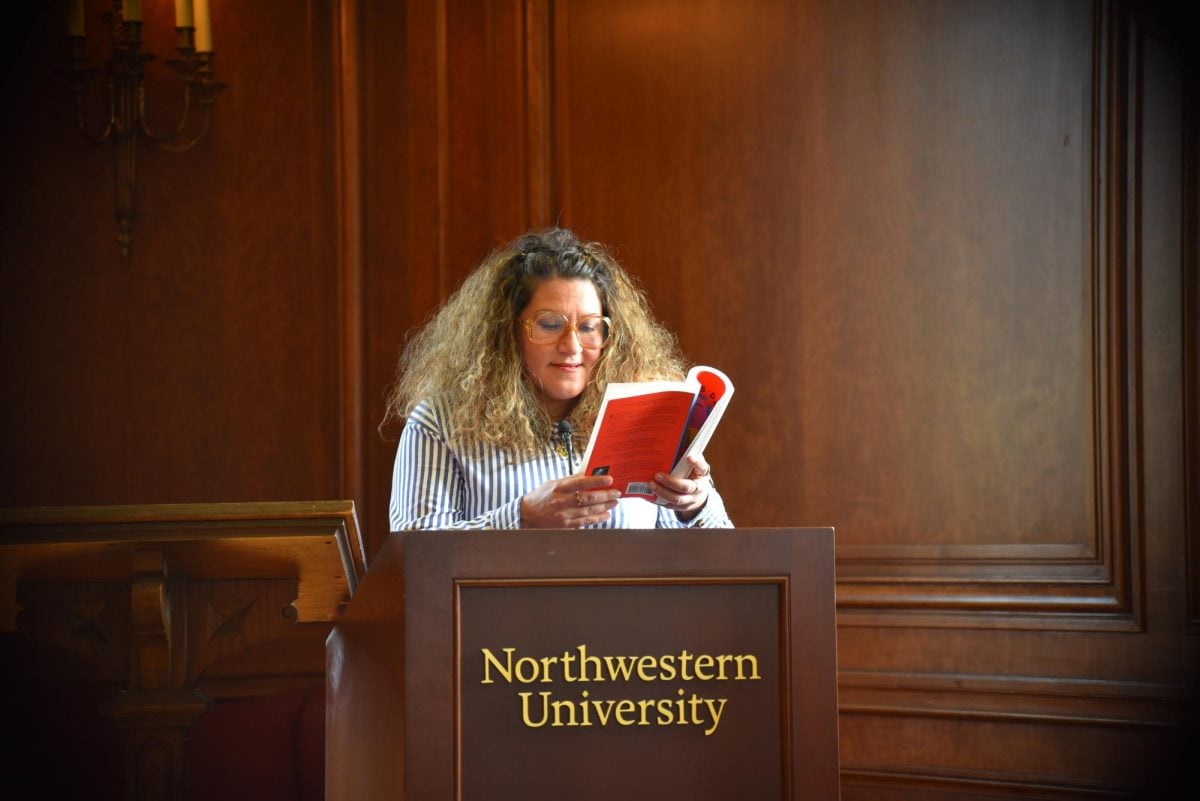Columbia Prof. Derald Wing Sue explained the concept of microaggressions in an on-campus address to about 50 students Thursday.
Sue defined racial, gender and sexual orientation microaggressions as “brief and commonplace daily verbal, behavioral or environmental indignities, whether intentional or unintentional, that communicate hostile, derogatory or negative racial slights.”
Racial and gender microaggressions, although seemingly trivial in nature, can have major consequences for minorities because they “create a hostile and invalidating campus climate” and “perpetuate stereotype threat,” Sue said. Stereotype threat refers to the anxiety felt when people think they might confirm negative stereotypes about their social groups.
Sue, who has contributed to more than 150 publications and productions about microaggression, said he has found microaggressions to be most common in situations where a person feels as if others will agree with them or support them by laughter or verbal encouragement. Throughout his speech, Sue provided instances of microaggressions from his research studies.
In one example, Sue discussed when teachers compliment black students for making articulate and bright contributions to class discussion. Sue asserted that this reveals a teacher’s subconscious belief that most blacks are inarticulate and lack intelligence.
Sue’s research also revealed that medical school students perceive female physicians wearing stethoscopes as nurses, exposing the subconscious bias that women should be in nurturing roles and are not as well suited to decision-making roles as men. He also gave examples of race and gender microaggressions from recently active politicians such as Sen. John McCain (R-Ariz.) and Vice President Joe Biden.
In addition to verbal microaggression, Sue cited statistics from his research about environmental microaggression, which is a manifestation of racism or sexism in one’s surroundings. Despite white Euro-American males representing only 33 percent of the population, Sue has found they occupy 80 percent of tenured positions in higher education, 92 percent of Forbes 400 executive CEO-level positions and 90 percent of public school superintendents. These environmental manifestations of microaggressions can construct a skewed worldview because “they represent a clash of racial, gender and sexual orientation realities.”
Sue himself said he has been the recipient of microaggression.
“It is a communication that I am a perpetual alien in my own country — that I am not a true American,” he said.
Sue encouraged moving forward by trying to understand the worldview and experience of minority groups, despite initial discomfort. He noted that although people are generally well-intentioned, “none of us are immune from inheriting the biases of our ancestors, institutions and society.”
“For us to move forward, we have to have the honest dialogue about what racism is all about,” Sue added.
Angela Edwards-Campbell, director of the Kellogg School’s Office of Diversity and Inclusion, introduced Sue and echoed his perspective.
“In essence, people are good, and we all do what we know until we learn differently,” she said.
Edwards-Campbell said the highlight of the speech was the conclusions reached by the research Sue referenced throughout his talk. That research, she said, proved the “unconscious phenomenon that happens among well-meaning people.”

